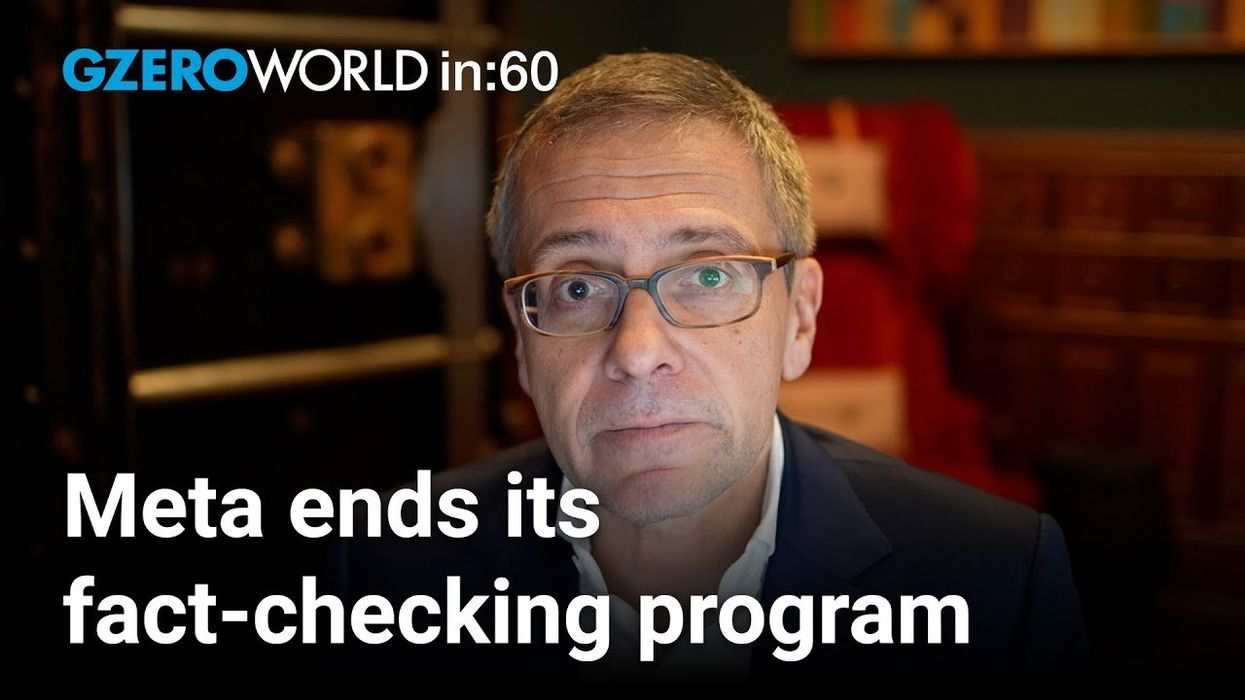ask ian
Meta scraps fact-checking program: What next?
What do you make of Meta ending its fact-checking program? What is the fallout from Justin Trudeau's resignation? As Trump is about to kick off his second term, who are his friends around the world? Ian Bremmer shares his insights on global politics this week on World In :60.
Jan 07, 2025


